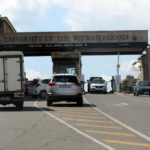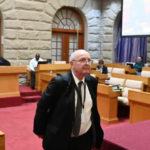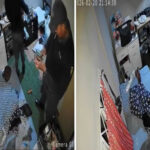On the evening of 16 May 2025, the community of Umlazi, a township south of Durban in KwaZulu-Natal, South Africa, was once again plunged into mourning. A horrific mass shooting in the Zama informal settlement, located in U Section, claimed the lives of eight people, leaving residents terrified and demanding answers. This is a story of a community gripped by fear, a relentless search for justice, and the haunting question of why such tragedies continue to occur.
At approximately 9 PM, reports began flooding into the local police station of a mass shooting in the Zama informal settlement. When officers arrived on the scene, they were met with a gruesome sight. Eight individuals, six men and two women, lay lifeless in a pool of blood, their bodies riddled with gunshot wounds. The victims, whose ages ranged from 22 to 40 years old, had been inside a dwelling when an unknown number of assailants stormed in and opened fire, killing them all.
A Durban-based private ambulance service, ALS Paramedics, rushed to the scene alongside SAPS and multiple security personnel. Paramedics described a horrific scene, with the area cordoned off and the lifeless bodies lying outside what was believed to be a tavern.
The response to the tragedy was swift, with KwaZulu-Natal police launching a manhunt for the suspects involved in the mass shooting. Police spokesperson Robert Netshuinda confirmed the details of the incident, stating that investigations into the possible motive for the killings were underway. Police appealed to the community for assistance, urging anyone with information that could lead to the arrest of those responsible to come forward.
The Ministry of Police, led by Minister Senzo Mchunu, strongly condemned the senseless and brutal killing of eight people. A spokesperson for the Ministry, Kamogelo Mogotsi, conveyed the Minister's outrage, stating that such an act of barbarism had no place in South African society. Mchunu assured the public that a dedicated team of investigators had been assigned to pursue every lead, gather critical evidence, and bring the perpetrators to justice.
Amidst the official response, stories of personal tragedy began to emerge. One terrified mother, Zibuyile Madondo, recounted her harrowing experience of surviving the mass shooting but losing her 19-year-old daughter in the process. Madondo described how she had hidden behind a sofa when the gunmen opened fire from outside the house, escaping unharmed. However, her daughter, who had just returned from the shops, was not so fortunate. Madondo tearfully recounted how her daughter had fallen on her feet after being shot and died there.
Understandably, Madondo expressed her intention to flee the area due to safety concerns. She stated that she would not return to the transit camp after work, fearing that she might be the next target. Madondo revealed that they had been relocated to the transit camp in 2010 from the nearby Uganda informal settlements and were told that they would only be there for six months. However, more than a decade later, they were still living in the temporary accommodation, which she described as unsafe and easily penetrable.
Ward 89 councillor Mbongeni Mjadu confirmed that the residents had been moved to the area from 2009 as a temporary measure ahead of the 2010 FIFA World Cup. He acknowledged that the residents were still traumatized by the shooting and expressed concern that they no longer felt safe in their homes. Mjadu stated that a meeting would be necessary to address the residents' concerns and try to find possible motives for the killings in order to calm them.
KwaZulu-Natal Premier Thami Ntuli visited the scene of the mass shooting on 17 May 2025, along with provincial police commissioner Lieutenant General Nhlanhla Mkhwanazi. Ntuli expressed his concern over the incident and acknowledged that it was making communities feel unsafe. He emphasized the need for the community to assist the police in their investigation by sharing any information they might have, even anonymously.
Ntuli pointed out that one of the problems in the area was the environmental design, with inadequate lighting at night and the state of the roads making it difficult for police to access the area. He pledged to address these issues as a priority.
Ntuli also raised concerns about the integrity of community safety structures, noting that some individuals involved in these structures had been found to be participating in crime. He cited the example of a metro police officer who had been arrested while participating in the pre-funeral celebrations of the life of an alleged criminal in the area.
The mass shooting in Umlazi has raised serious questions about the state of crime and security in the region. The fact that such a tragedy could occur despite the presence of community safety structures and the efforts of law enforcement agencies suggests that there are deeper issues at play.

Follow Us on Twitter











